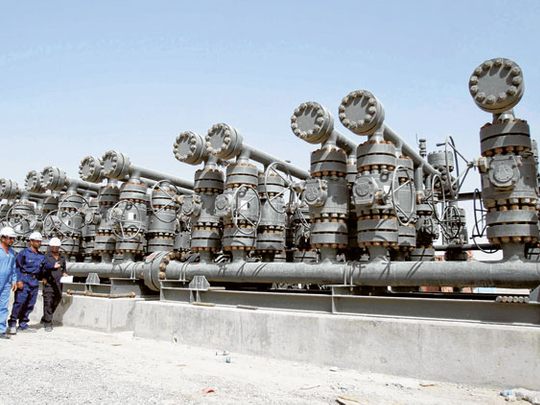
When the International Energy Agency (IEA) was established in 1974, it was the energy club of the rich OECD countries, accounting for 75 per cent of oil demand, but it is now less than half due to the rising requirements of the developing countries.
Therefore, the IEA is seeing its base of existence narrowing though more members have joined since. Nobuo Tanaka, the former executive director of IEA, told the Financial Times in March 2010; "Our relevance is under question because half of the energy consumption already is in non-OECD countries. And for oil it is soon coming that the majority of consumption is happening in non-OECD countries."
The IEA is trying to shore up its influence by inviting other countries for cooperation in its programmes. As recently as September 20, 2011, the IEA signed a memorandum of understanding with the Association of Southeast Asian Nations (Asean) — comprising ten Asian countries — in Brunei Darussalam to enhance ties as their demand is set to expand due to economic and population growth and further urbanisation and industrialisation. This group of countries produced 2.9 million barrels a day (bpd) and consumed 3.8 million bpd in 2010 while its total energy consumption was close to the equivalent of 10 million bpd and this is forecast to increase by 84 per cent by 2035.
But the IEA is not yet so successful with China, the country outside Asean with total primary energy consumption in 2010 of almost the equivalent of 50 million bpd or 21 per cent of the world's total. The IEA has been trying hard to lure China into some kind of cooperation and even outright invitation to join the Agency.
Luring the giant
This has been going for some time now and as early as July 2008. As a result of rising oil prices and environmental concerns Nobuo Tanaka invited China to join IEA. But legally members of IEA must be members in OECD and therefore the invitation was modified to a "special partnership" where information and expertise can be exchanged but more importantly "wider policy cooperation on oil stock management." China has been invited to send observers to some IEA meetings and Ma Hong, a senior researcher at the China University of Petroleum said "both China and existing IEA members could benefit from China's IEA membership" and "this could help to stabilise the world energy market through coordinated actions in adjusting oil stocks and exchanging key information and technologies."
However, Chinese political leaders are cautious and have so far made no official comment on such overtures as they see IEA controlled by the rich especially the US and they want to maintain their stand as advocates of developing countries as China is one.
But China's state-owned energy companies are increasingly teaming up with western companies whenever it is more advantageous to them though they have been prevented from buying oil companies in the US.
The IEA in a recent report praised the Chinese energy companies for their relative independence from the government where China has spent more than $48 billion (Dh176.31 billion) on oil and gas investments abroad.
Nobuo Tanaka in a lengthy speech in Beijing last June 25, laid open the case why he wants close cooperation with China and regretted that during his term he was unable to bring China into membership.
As China is increasingly dependent on global markets for oil, gas and even coal in the future it is important, according to Tanaka, that it seeks "joint mechanisms for managing crisis", and perhaps one day join the IEA "as a global energy governance forum." He praised China for publicly supporting the 60 million barrels strategic oil release and said "it is a good indication of the progress we have made in closer collaboration over the last couple of years." He pointed the advantages to China in terms of emergencies, energy security, technology transfer and "to demonstrate to the world that China is reaching the point of development where it can confidently engage along-side other developed economies."
The same position is reiterated by Maria van der Hoeven, the new executive director of IEA, when she said recently that cooperation with China will be intensified.
So will China join IEA? I don't know but those who have read Orwell's Animal Farm remember that socialists and capitalist can play games on the same table and that may not be to the advantage of producers.
The writer is former head of Energy Studies Department at the Opec Secretariat in Vienna.











